Choisissez la langue de votre document :
- bg - български
- es - español
- cs - čeština
- da - dansk
- de - Deutsch
- et - eesti keel
- el - ελληνικά
- en - English (Selected)
- fr - français
- ga - Gaeilge
- hr - hrvatski
- it - italiano
- lv - latviešu valoda
- lt - lietuvių kalba
- hu - magyar
- mt - Malti
- nl - Nederlands
- pl - polski
- pt - português
- ro - română
- sk - slovenčina
- sl - slovenščina
- fi - suomi
- sv - svenska
Businesses, researchers and the authorities in the Member States have been working on the development of contact tracing applications as part of the response to the pandemic. These apps can send alerts to people who have been in close proximity to an infected person, so that they can decide to self-quarantine. A coordinated European approach, preferably a single European app, is essential in the internal market and the Schengen area. Although it might potentially be successful, together with other specific measures it might also be a very intrusive tool, so it needs to be accompanied by adequate safeguards, the right technical standards, and must be a strictly temporary measure used only for the purpose of informing people that they have been in close proximity to infected people. A big enough uptake is crucial for the system to succeed, and cannot be achieved if the system is not trusted. 1. Can the Council explain how a contact app can contribute to the response to the pandemic, and what the preconditions for its success would be, for example in terms of uptake? How will groups who as a general rule do not have smartphones, such as elderly people, be reached? 2. Does the Council consider that the use of contact apps should be voluntary and that the scheme should be temporary? Can the Council indicate what legal basis would be available to impose the mandatory use of a contact app? How will the Council ensure that contact app schemes enjoy the highest level of cybersecurity protection and that they will be discontinued once the crisis is over? 3. Will the Council stick to decentralisation as a guiding principle, and will it recommend that Member States opt for a decentralised application, where data are not stored in centralised databases, making them prone to a potential risk of abuse? 4. Does the Council consider that the functioning of contact tracing apps should be made fully transparent through the use of open source, so that people can verify both the underlying protocol for security and privacy, and check the code to see whether the application functions as stated? 5. Does the Council consider that providers of these apps should be fully and exclusively governed by EU law, and not potentially exposed to subpoenas from third countries to share data collected in the scheme? 6. Does the Council agree that full transparency should be provided in relation to the decision-making process, including the process of selecting specific models/providers, and that any commercial interest must be declared? Submitted: 16/04/2020 Lapses: 17/07/2020 |
| Last updated: 20 April 2020 | Legal notice - Privacy policy |

